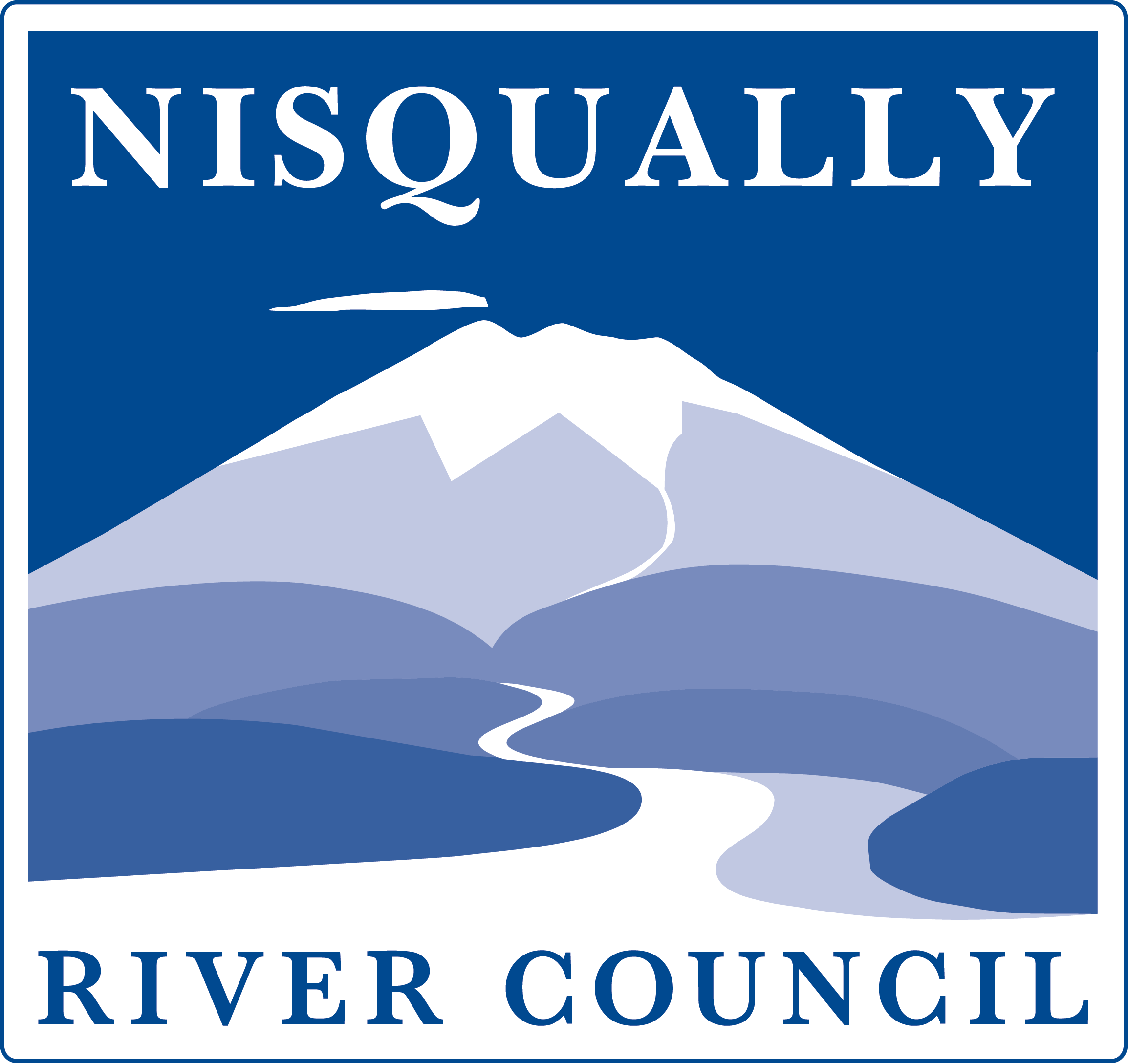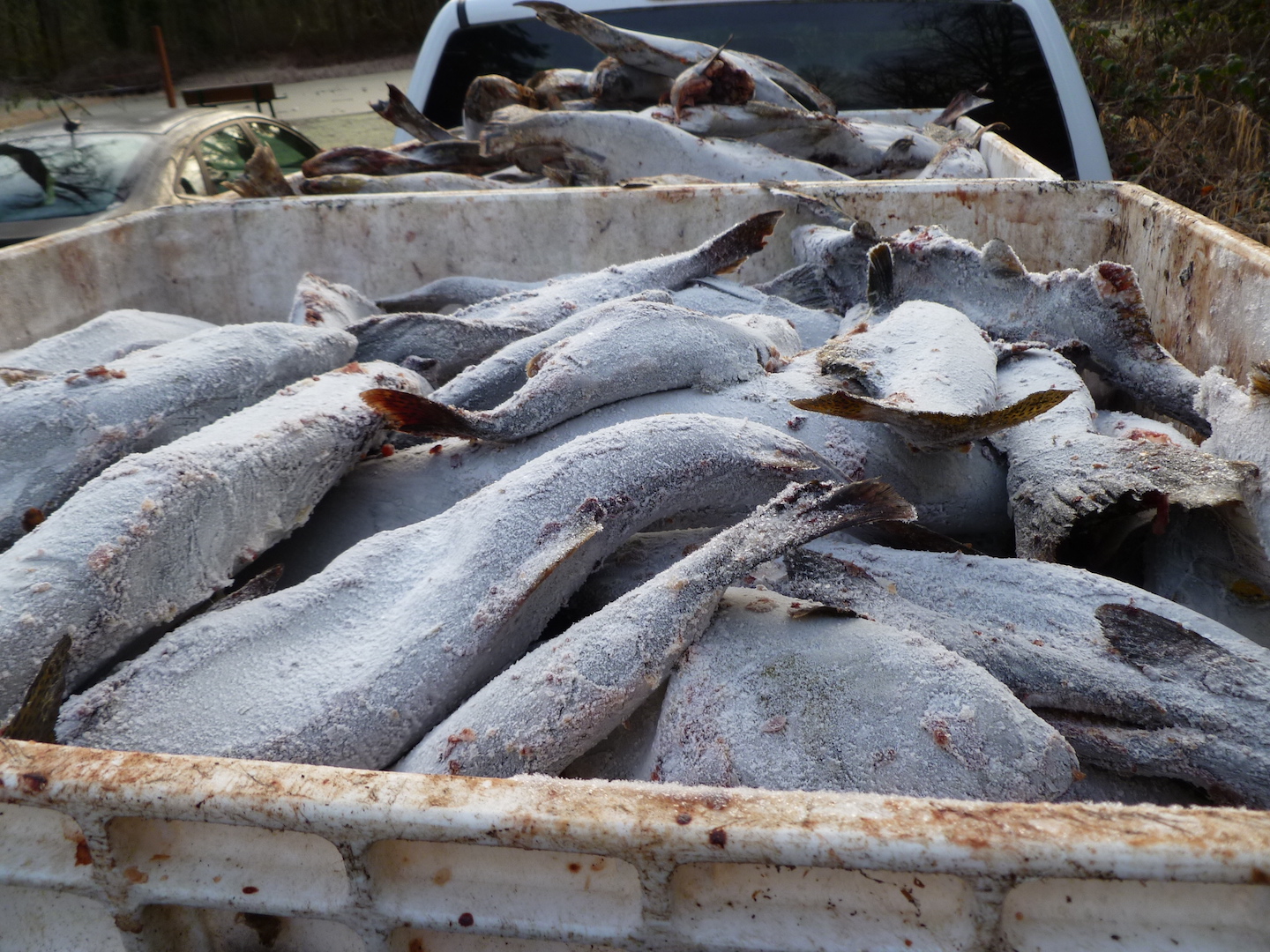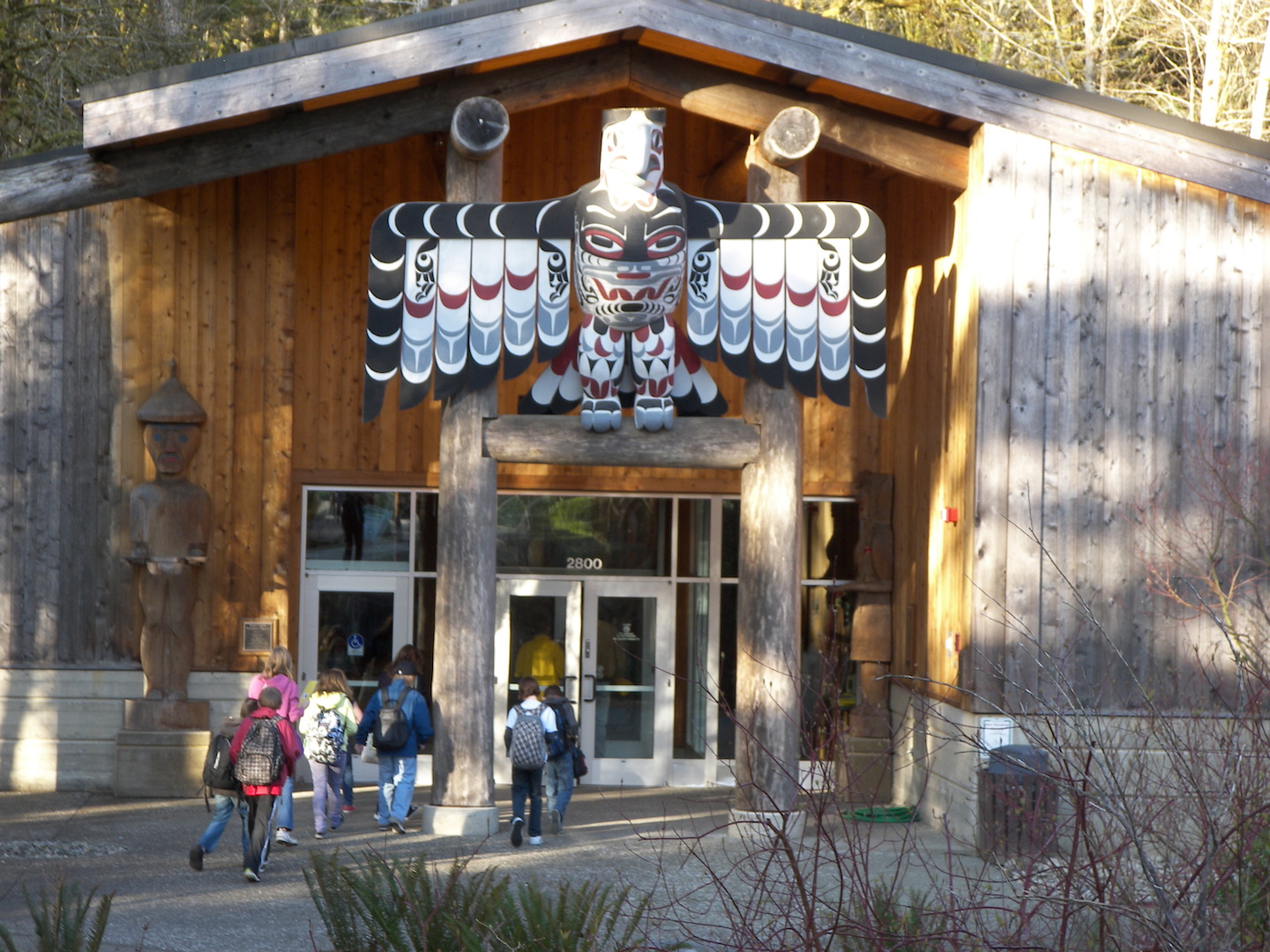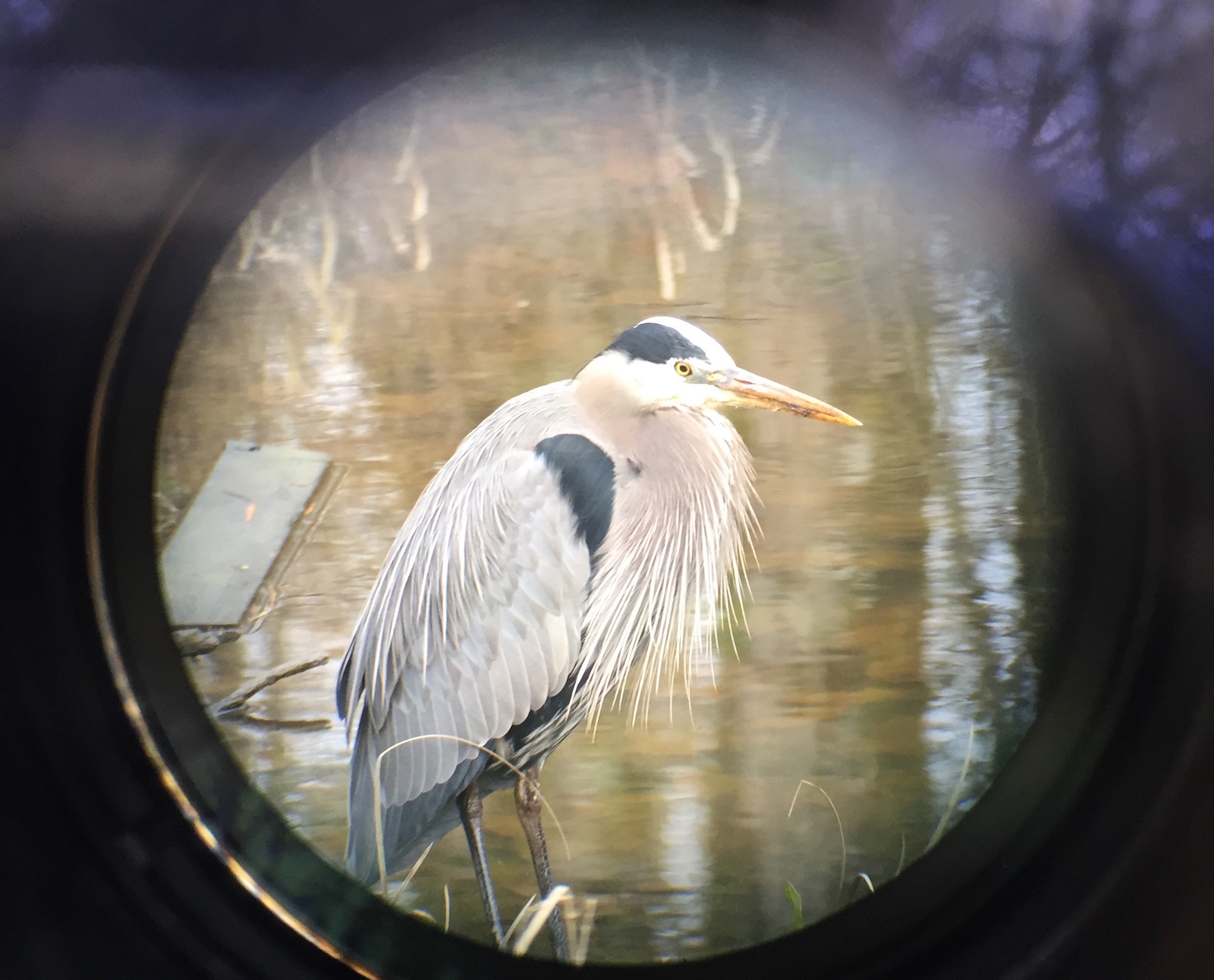On the first day of Spring as the sound of rain fills the air around The Evergreen State College, so too does the sound of hundreds of eager elementary and middle school students as they make their way to the gymnasium. The students and their teachers, prepared and excited for what the day will bring, don’t let the rain showers dampen their spirits in the slightest as student MC’s Betsy and Petra from Reeves Middle School welcome their peers and introduce John the Falconer to give the keynote address. As the massive wings of a turkey vulture unfurl, the excitement is tangible in mouths agape and shouts aplenty. John welcomes everyone by sharing about the importance of conservation for birds and all animals in our environment, including humans, just before eliciting an even bigger reaction from the crowd as he feeds the vulture a dead mouse. Thus begins the 32nd Annual Student GREEN Congress!
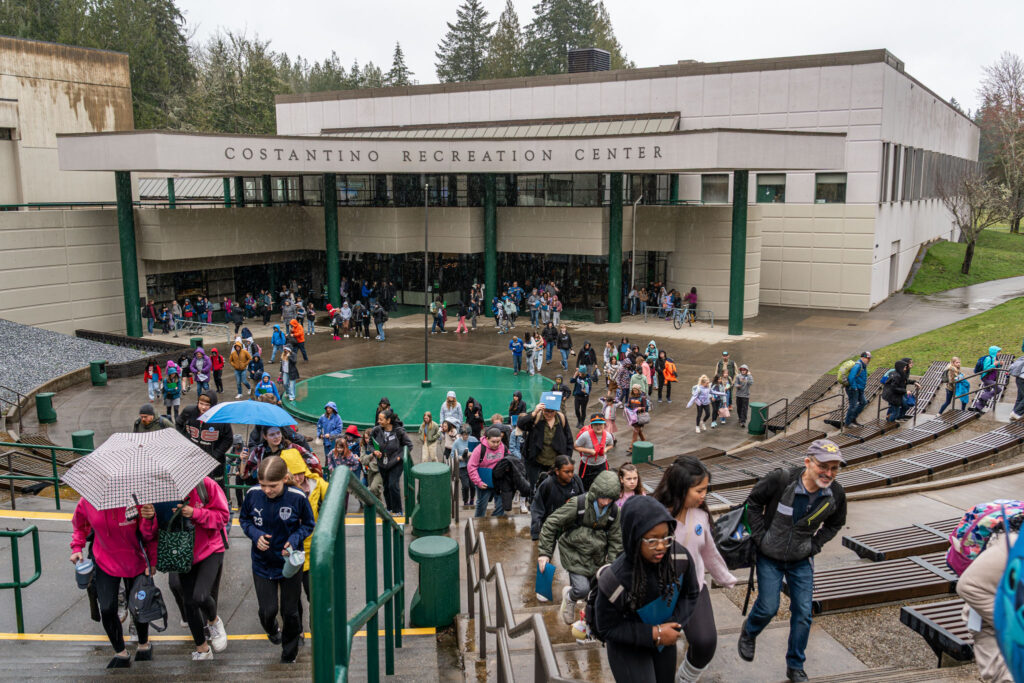
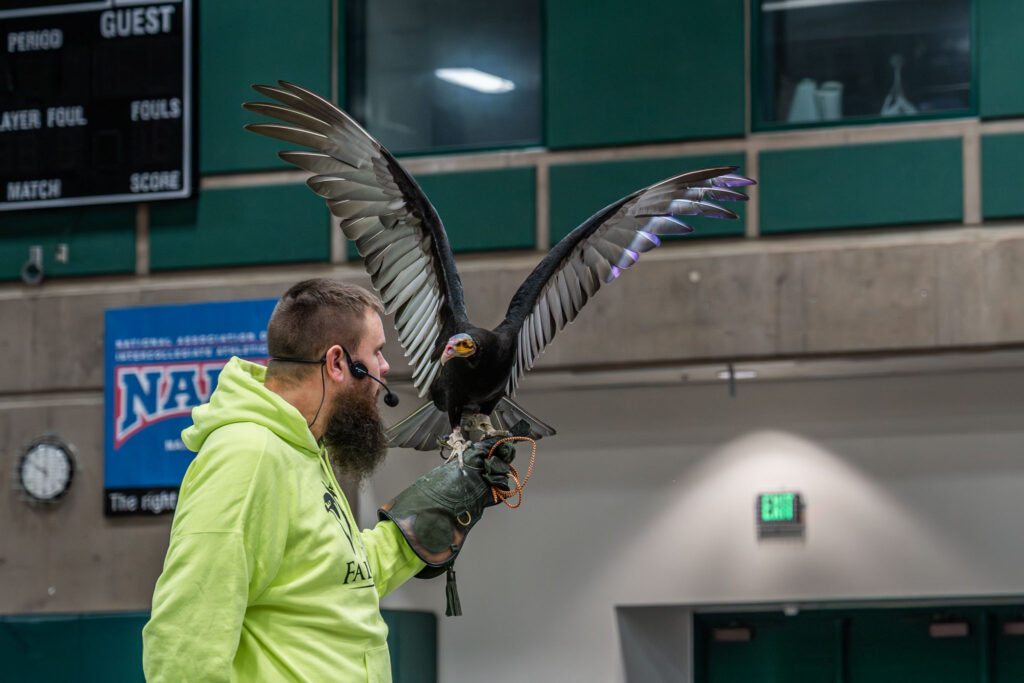
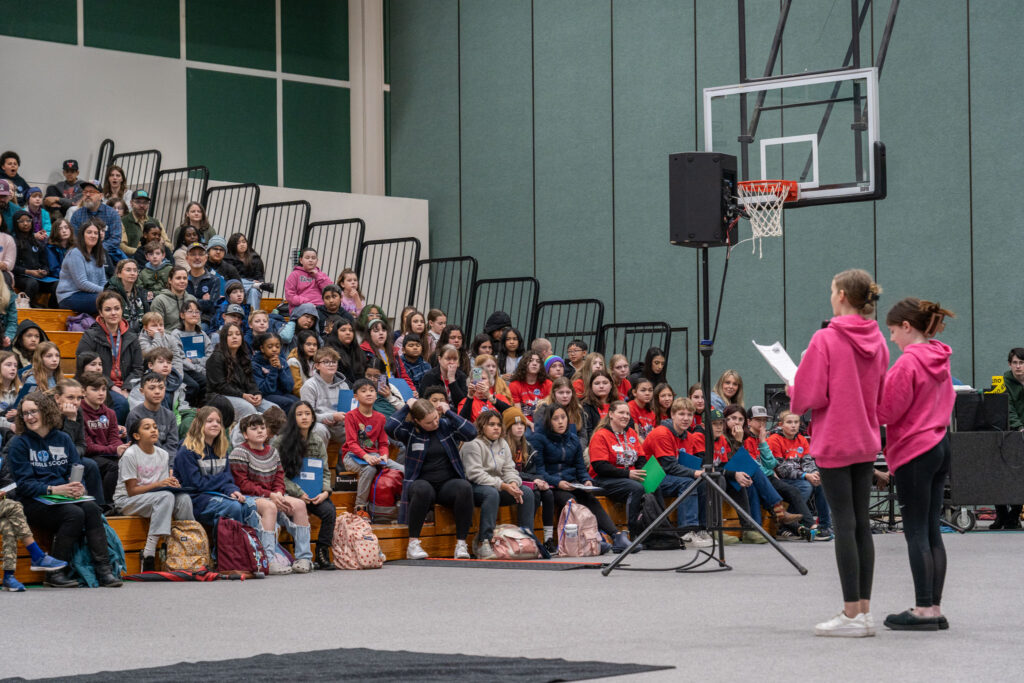
For over three decades, classrooms of students throughout our watersheds have visited their local streams and rivers to monitor the water’s health. After testing the water quality in both Fall and Winter, eight delegates from each class are chosen to represent their school at Congress. The purpose of this Spring water quality summit is not only to elevate student voices, but to inspire youth to become stewards of their watershed ready to implement their very own action projects. This year, 450 student delegates from 32 schools representing over 55 classrooms from throughout the Nisqually, Deschutes, and Chehalis watersheds came together on March 20th, 2025. Throughout the day these delegates celebrated their watersheds, shared their water quality data with one another, and took part in a variety of environmental workshops led by local natural resource professionals.
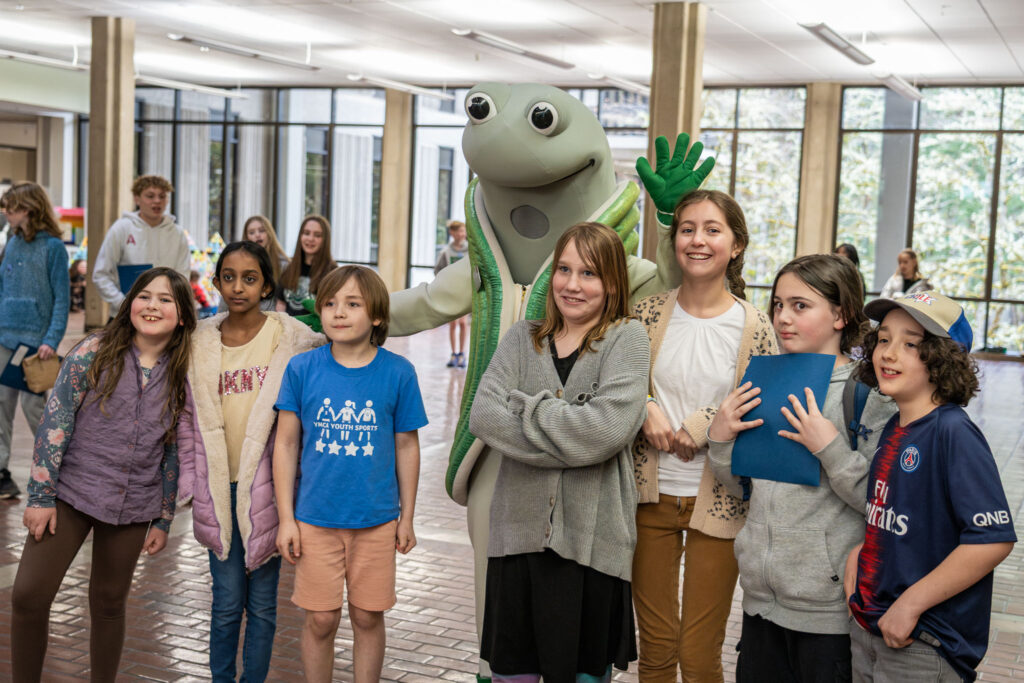
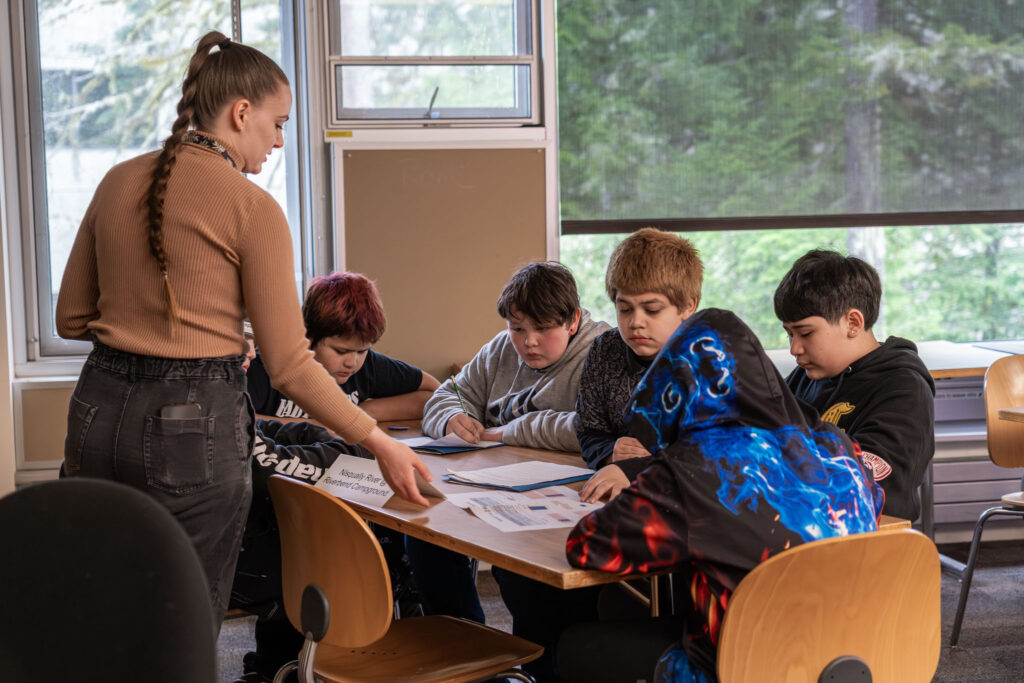
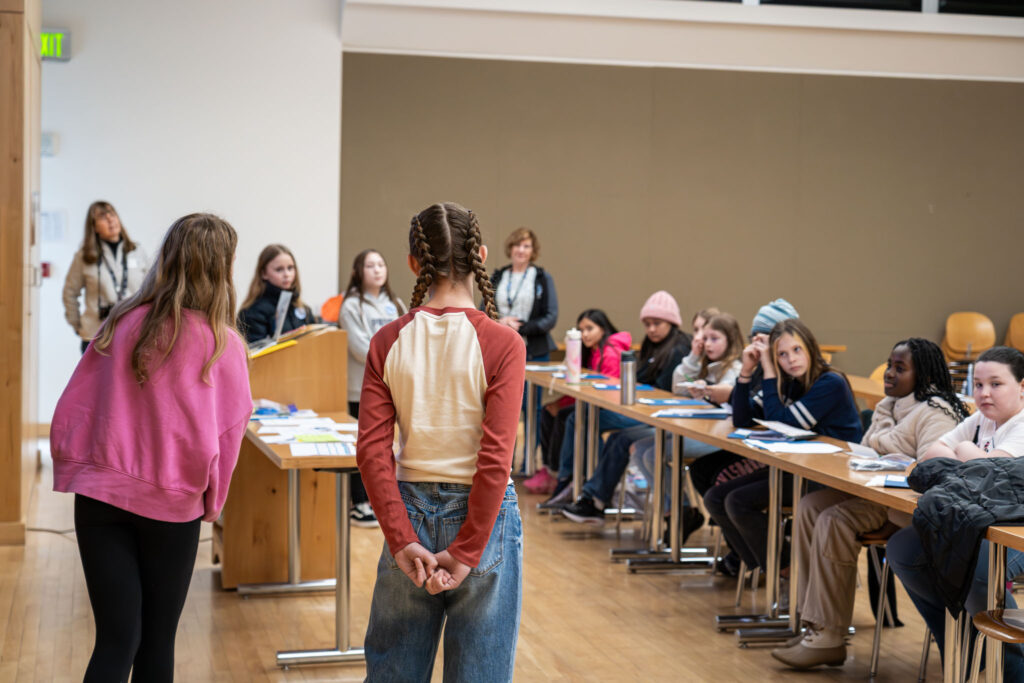
After the welcoming ceremonies, student delegates spread their own wings as they split into 30 “State of the Rivers” sessions. These sessions, facilitated by community volunteers, are meant to guide students through the process of teaching and learning from one another about their water quality monitoring experience. In the weeks leading up to Congress, students worked in groups of four to create presentations introducing themselves, describing the testing site near their school, and highlighting their data. After practicing their presentations at school, students arrive at State of the Rivers ready to share their scientific findings with 12-16 other delegates. Through these sessions, students discuss and generate “action projects” that they and their communities could take part in to improve watershed health. These project ideas are collected and compiled into the official top five actions recommended by the entire delegation. The 2025 delegates’ top five action recommendations include:
- Reduce littering
- Plant trees
- Education
- Remove invasive plants
- Recycle
When all State of the Rivers sessions are complete, students rejoin their classmates and teachers for lunch across The Evergreen State College’s beautiful campus and receive visits from the college’s iconic mascot – Speedy the Geoduck. Following lunch, each student takes part in one of 26 workshops led by an array of community organizations. These workshops offer a fun, hands-on way to deepen students’ connection to their local environment while meeting community role models. 2025 Workshops were led by Washington Department of Ecology, the Nisqually Indian Tribe’s Community Garden, Nisqually Indian Tribe’s Department of Natural Resources, LOTT, Wolf Haven International, the Olympia Mountaineers, Black Hills Audubon, Pierce Conservation District, Thurston Conservation District, Billy Frank Jr. Nisqually National Wildlife Refuge, Deschutes Estuary Restoration Team, The Evergreen State College, Nisqually Reach Nature Center, Firecraft Northwest, Pacific Shellfish Institute, South Puget Sound Salmon Enhancement Group, and many more!
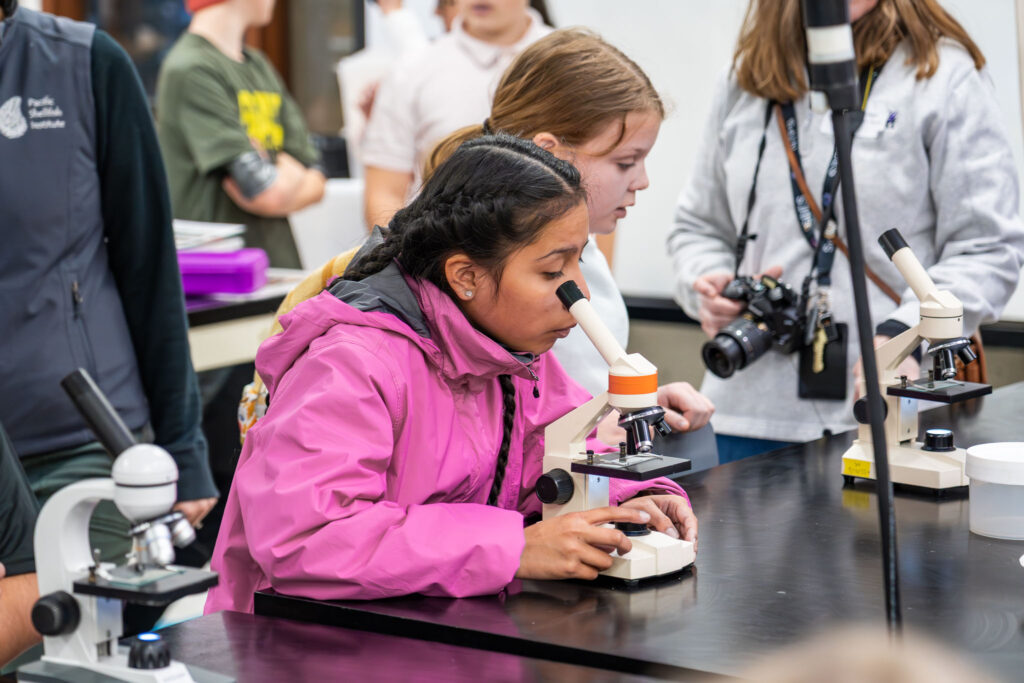
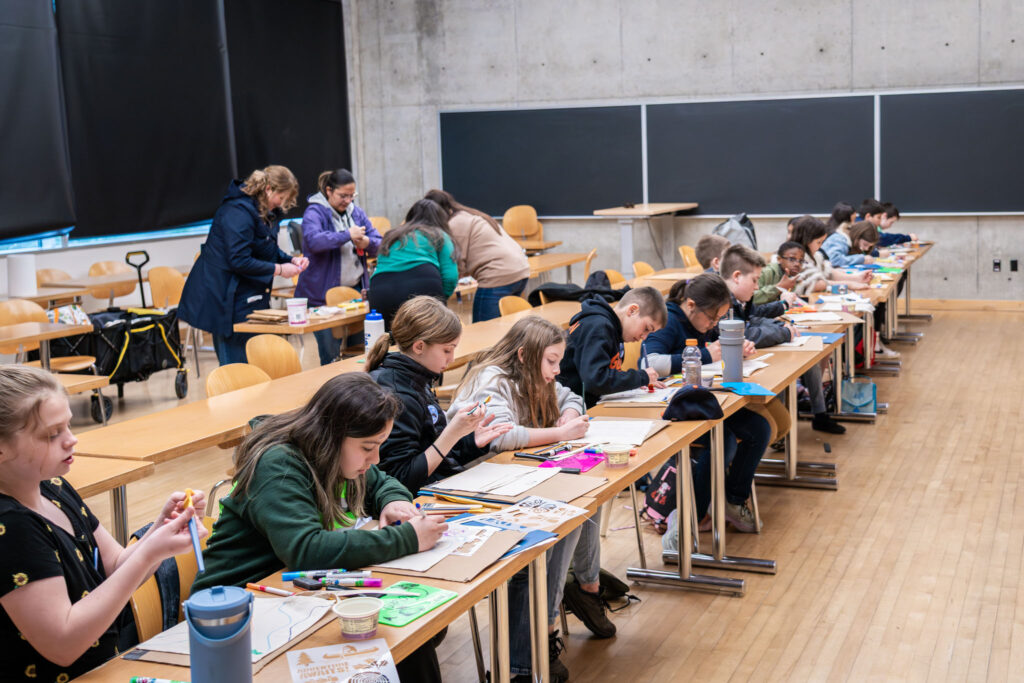
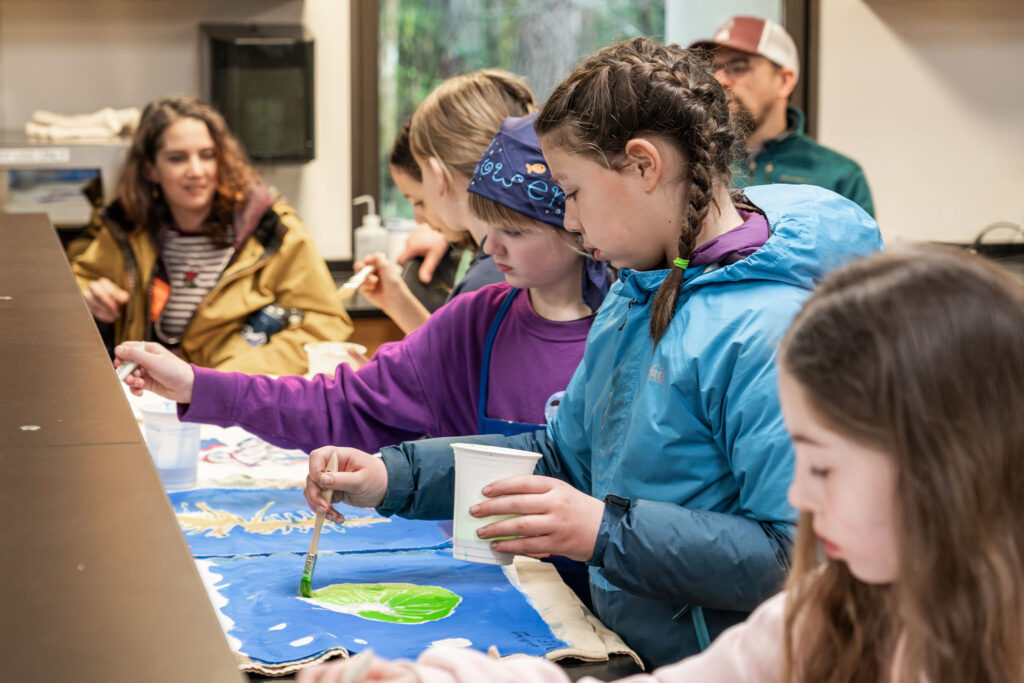
As the day draws to an end, all student delegates return to the gym for a closing ceremony where student MC’s report on the top recommendations generated by the delegates and lead all students in the “Watershed Action Declaration” by pledging the following:
“I hereby resolve
To do things great or small
To improve the earth, it’s many ecosystems
It’s water, land and living things
And all its human hearts.
I promise I shall care,
To love and cherish all its gifts
With people everywhere“
The 32nd Annual Student GREEN Congress adjourns and with its ending every student and teacher is gifted a young fir tree to be planted in their communities. These trees are generously donated by the Nisqually Indian Tribe’s “NET” (Nisqually Environmental Team). The following week, we reached out to student delegates to hear about their experience. When asked “What is one new thing you learned at Congress?” here’s what students had to say:
“We should learn to take care of water.”
“How important salmon are to other tribes.”
“I learned how to make sure salmon stay safe and healthy and I learned how to draw things from nature.”
“I want to go to college.”
“I learned more ways to help restore our environment and that plantain helps with stinging nettle.”
“We can do so many things to keep our creeks and fish clean.”
“I learned how to reduce plastic consumption in ways I hadn’t thought about.”
“One new thing I learned at Green Congress is that no matter what you do for science it’s always super fun!”
“That sometimes all you have to do to help your watershed is spread awareness.”
Thank you to everyone who made this year’s event possible! We believe in the power of outdoor learning and we already can’t wait for the 33rd Annual Student GREEN Congress!
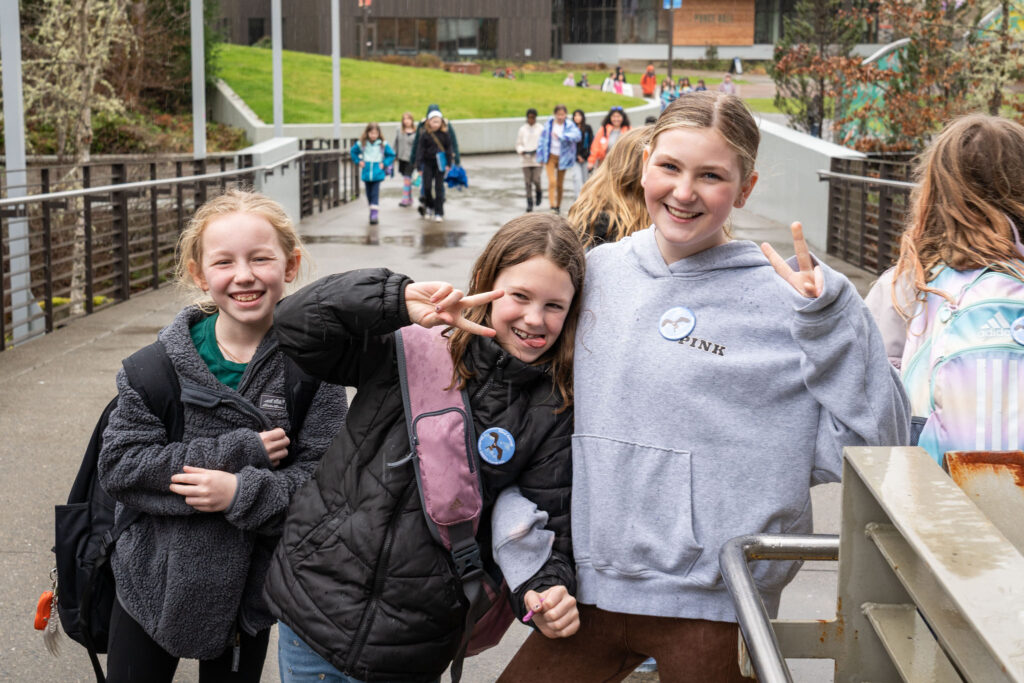
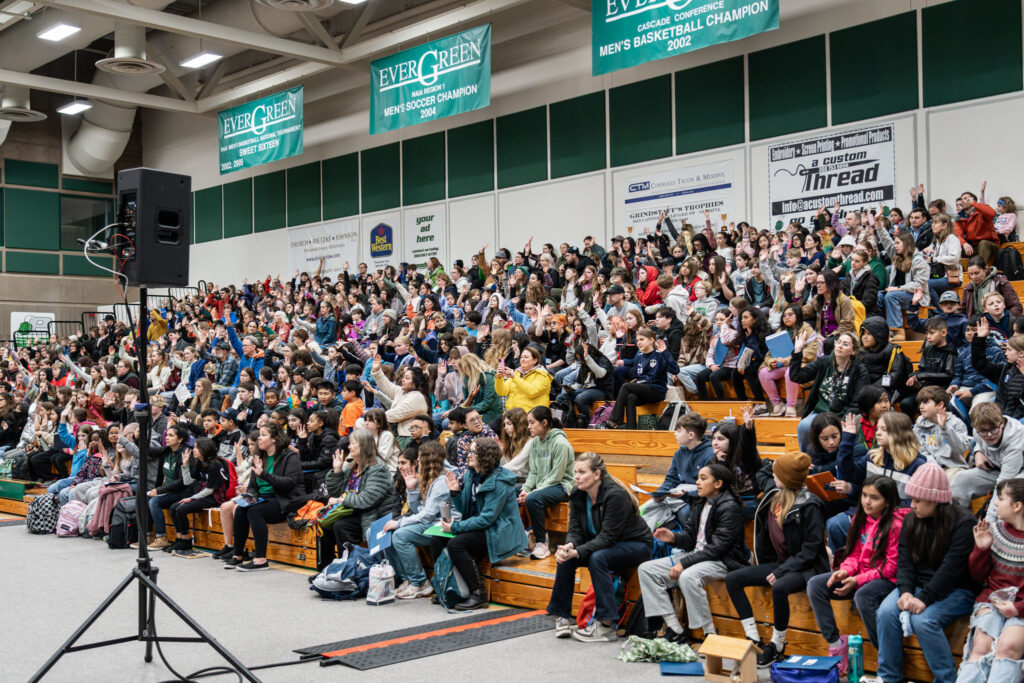
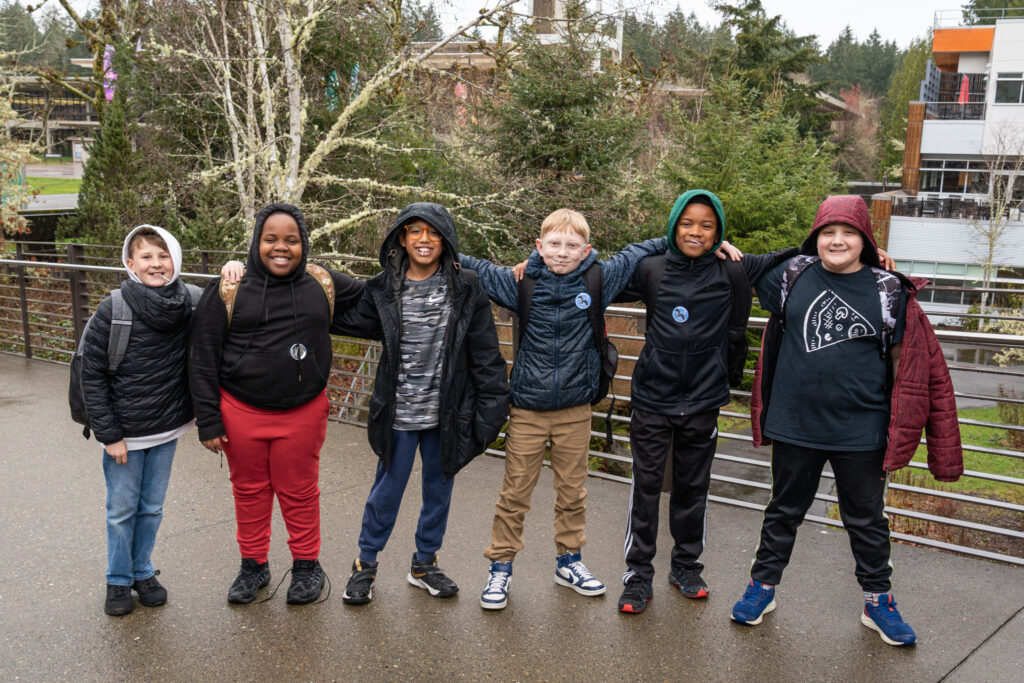
Nisqually River Education Project, South Sound GREEN, and the Chehalis Basin Education Consortium are three sister environmental education programs which co-organize Student GREEN Congress. This event is made possible through the generous support of our faculty sponsor at Evergreen State College, Carri Leroy. Additional volunteer and financial support is provided by our many community partners. To learn more about how you can be involved in Student GREEN Congress, please contact Davy Clark, Nisqually River Education Project Program Director, davy@nisquallyriver.org
